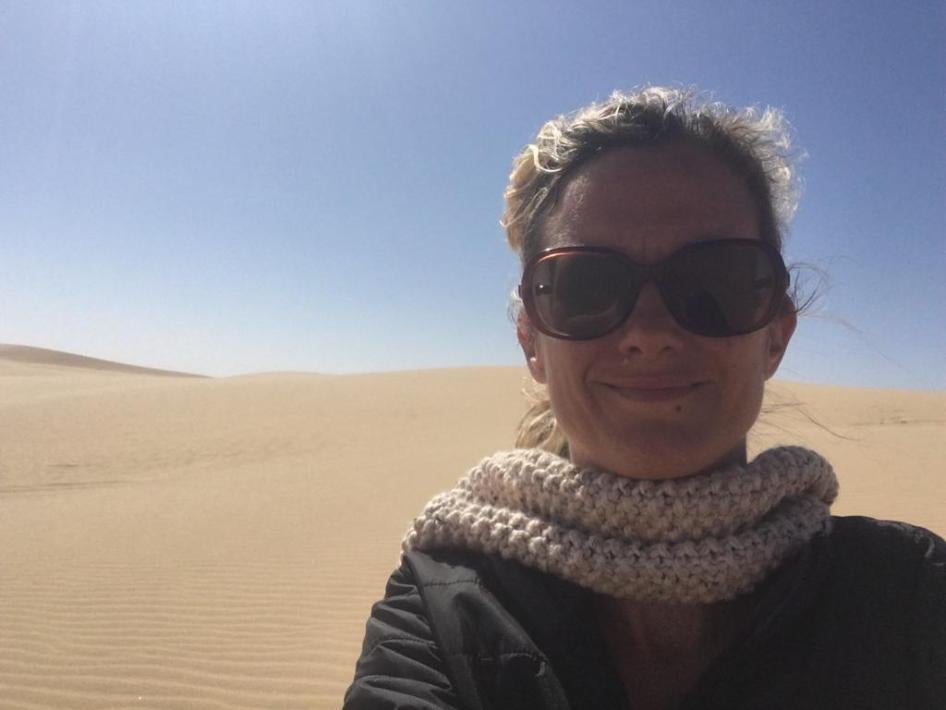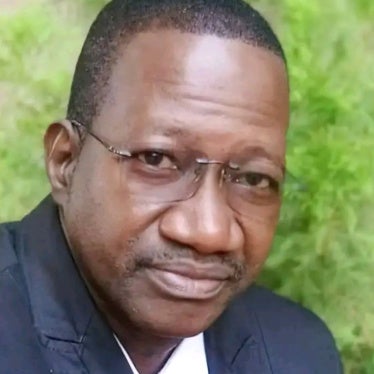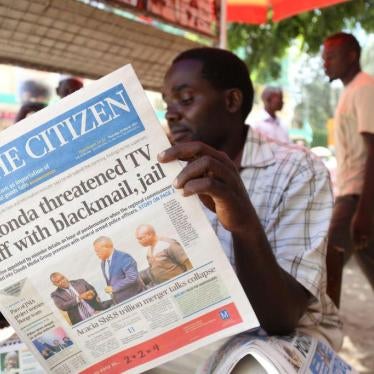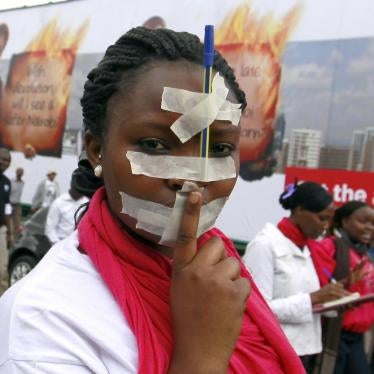Democratic Republic of Congo authorities on Tuesday expelled French reporter Sonia Rolley after her application for journalistic accreditation was rejected.
Rolley, 42, a long-time reporter for French broadcaster Radio France Internationale, had covered Congo and Africa’s Great Lakes region since 2004. She is known throughout Congo and to an international audience for her intrepid and well-informed reporting, exposing corruption cases and human rights abuses, as well as covering major political events. More than half a million people follow her on social media.
Rolley had applied for accreditation in September to start a new position as a correspondent for Reuters. She had been assured her credentials were ready to be issued. But, on Tuesday, responding to a summons, Rolley presented herself to immigration police in Kinshasa, who confiscated her passport and took her directly to the airport.
Before being put on a flight to Paris, Rolley learned that she was being expelled because of her past journalism work. In a statement on Wednesday, the Communications Ministry said she was “illegally residing in the country,” despite holding a valid document in her passport.
The media in Congo has for years played a critical role reporting on crises and corruption, amidst armed group attacks on civilians, abuses against Indigenous groups, and the struggles of civil society groups to carve out free space.
Rolley’s expulsion is only the latest attack on press freedom in Congo, where journalists increasingly face harassment, threats and arrest. Last month, authorities in Kinshasa tried to arrest Congolese journalist Steve Wembi, a contributor to the New York Times.
President Felix Tshisekedi, soon after taking office, pledged to promote the media to become “a real fourth estate.” His promise seems long forgotten. On November 1, the monitoring group Journalist in Danger (Journaliste en danger, JED) said the “security situation for Congolese journalists [was] alarming,” reporting at least 123 cases of threats, arrests, physical attacks, and one journalist killed this year.
As Congo grapples with renewed fighting in its eastern region and an approaching electoral cycle, journalists should be able to work without fear of arrest. Rolley should be allowed back into the country as a reporter. Journalism is not a crime but the sign of a healthy democracy.
|
Dispatches
Congo Expels Renowned Journalist
Authorities Refuse Accreditation to Sonia Rolley
Your tax deductible gift can help stop human rights violations and save lives around the world.
Region / Country
Topic
Most Viewed
-
November 25, 2019
A Dirty Investment

-
December 19, 2024
Extermination and Acts of Genocide

-
December 4, 2020
“They’re Chasing Us Away from Sport”

-
February 19, 2018
“All We Want is Equality”

-
November 4, 2019
The High Cost of Change





